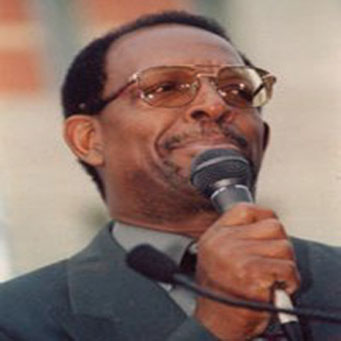
Warring with the war on drugs
By Maya Rhodan
WASHINGTON, D.C. (NNPA) – Ron Daniels, president of the Institute of the Black World 21st Century, declared a war on the War on Drugs last week, saying it is fine to end the failed public policy.
“The War on Drugs is a racially biased policy and strategy. It is the new Jim Crow,” Daniels said. “We come today to claim that we’ve suffered enough… it’s time to bring an end to an ill-conceived and destructive policy and strategy.”
Daniels made his declaration of war on Thursday – the 45th anniversary of the assassination of Dr. King – at the National Press Club.
Daniels and members of the IBW are calling on members of the African American community who were largely responsible for his reelection to rally together for a “The War on Drugs is a War on Us Day of Direct Action” on June 17 to urge Obama to directly address issues that have an overwhelming negative impact on the Black community.
The federal government declared “war” on drugs in 1971, when then-President Richard Nixon cited drug use as America’s Public Enemy No.1 and an overall threat to national security. In the years following, policies and statutes came into play that penalized users and distributors of illicit substances, particularly African Americans.
IBW believes the War on Drugs has led to the mass incarceration of Black and Brown people and has aided in the creation of a new slavery in which prisoners are used as free labor at the benefit of large corporations.
According to the NAACP criminal justice fact-sheet, 14 million Whites and 2.6 million Blacks report using illicit drugs, yet Blacks are incarcerated for drug offenses at a rate 10 times that of Whites.
African Americans represent 12 percent of the total population of drug users, according to the fact sheet, yet 38 percent of those arrested for drug offenses and 59 percent of those currently in state prison for a drug offense.
Daniels says, “Now it is time for the President Obama to directly respond to the state of emergency in America’s dark ghettos by having the audacity to end the War on Drugs and vigorously promote investment in jobs, economic and social programs to heal Black families and communities,” Daniels said.
The Day of Direct Action, set on the anniversary of the executive order that started the War on Drugs in 1971, calls on President Obama to completely eliminate the disparity between powdered and crack cocaine, issue an executive order to end the War on Drugs, end prison labor, support publically the decriminalization of marijuana, and allocate more federal funds for drug education, counseling and treatment.
IBW also calls on the President Obama to begin to develop public sector jobs and economic development programs that have priority inclusion for exprisoners.
Courtney Stewart, a formerly incarcerated person and cur-rent chairman of the Reentry Network for Returning Citizen, a D.C.-based advocacy group, joined Daniels in calling on President Obama to end to the War on Drugs, spoke at the press conference on behalf of the exprisoner community.
“I’m here to remind folks that we have to remember this system and what this system has done,” Stewart said. When he was released from prison in 1985, he recalls having to sleep on the floor in his mother’s house until he was able to find work and get back on his feet.
“You come back to the community feeling like you’re being punished all over again,” Stewart added “Many of us go away for non-violent convictions, but when we come home we’re all thrown into the same basket of ‘felon.”
Stewart wants the returning citizen population to receive better treatment after their released, but also during incarceration so that they have something to bring to future employers.
“The prison pipeline starts with a young person, but it ends with a person in their 40s or their 50s who no one wants to be bothered with,” Stewart said.
Tyrone Parker, founder of Alliance of Concerned Men, wants people to consider the pipeline to prison that is created within the Black community and the effect that it has on youth.
Black youth are currently 40 percent of the incarcerated juvenile population.
“We’ve got to become more conscious and we’ve got to begin to draw the line to be able to transform our communities,” Parker said. “We can no longer continue to accept this business as usual.”
Ivan Cloyd, 23, knows first hand the effects of the War on Drugs and the impact being incarcerated can have on your life.
As a former drug dealer and ex-felon, he is faced with stigma that he says makes it hard for him to obtain employment.
“It’s like I’m still serving time without being in prison,” Cloyd said. He is ineligible for federal financial aid because of his drug distribution conviction. “I look at the president and say if you want to get serious about economic development and about helping people these are some of the things that affect us.”
“When you launch a war that means there’s an enemy and when there is an enemy there is a primary objective to either destroy the enemy or capture and incapacitate the enemy,” said Divine Pryor, executive director of the Center for Nu-Leadership on Urban Solu-tions, a think tank led by exprisoners.
“Let’s remove the smoke screen, the War on Drugs is a war against Black and Brown folks,” Pryor added. “The War on Drugs has left a trail of destruction in our community. Putting a stop to it will rein-vigorate the economic engine that the President says he has a priority to do.”

